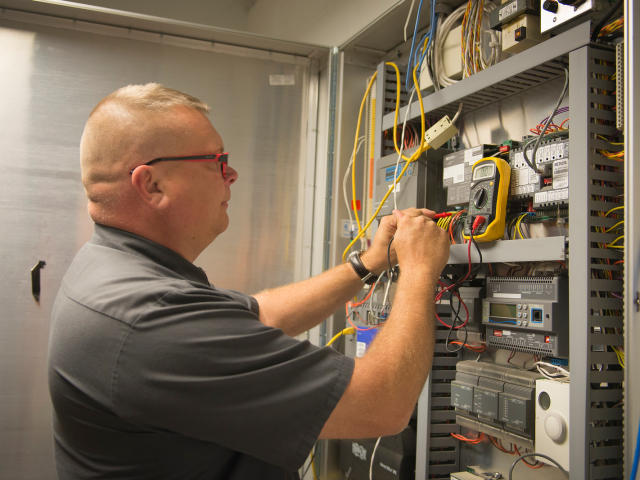The Role of Electrical Engineers

In the age of technological advancement, electrical engineers play an indispensable role in shaping and sustaining modern infrastructure. Their contributions extend far beyond the generation and distribution of electricity. Electrical engineers are the architects of our electrified world, powering everything from our homes to our industries and even our dreams of a sustainable future. In this article, we delve into the multifaceted role of electrical engineers in modern infrastructure and how they are driving innovation, efficiency, and sustainability.
The Evolution of Electrical Engineering in Infrastructure
Electrical engineering has come a long way since its inception. From the development of the first electrical power systems by pioneers like Thomas Edison and Nikola Tesla to the sophisticated grids and networks of today, the field has evolved significantly. Here’s how electrical engineers have been instrumental in this journey:
1. Power Generation and Distribution
The most obvious role of electrical engineers is in the generation and distribution of electrical power. They design power plants, develop transmission systems, and ensure that electricity reaches every corner of our cities. With the increasing demand for clean energy, electrical engineers are at the forefront of developing renewable energy sources like solar and wind power.
2. Smart Grids and Automation
Modern infrastructure relies heavily on smart grids and automation. Electrical engineers are responsible for designing, implementing, and maintaining these intelligent systems that monitor and optimize power distribution. Smart grids not only enhance efficiency but also reduce energy wastage, contributing to a more sustainable future.
3. Sustainable Energy Solutions
Addressing climate change is a global imperative, and electrical engineers are key players in this endeavor. They work on innovative technologies such as energy storage systems and electric vehicles, which reduce greenhouse gas emissions. Electrical engineers are pivotal in the transition from fossil fuels to clean energy sources.
4. Infrastructure Resilience
In an era of increasing natural disasters, infrastructure resilience is paramount. Electrical engineers develop solutions to protect power systems from damage caused by hurricanes, earthquakes, and other hazards. Their work ensures that critical infrastructure remains functional during crises.
The Intersection of Electrical Engineering and Information Technology
The modern world is driven by data, and electrical engineers are seamlessly integrating information technology into infrastructure. Here’s how:
1. IoT and Connectivity
The Internet of Things (IoT) is revolutionizing infrastructure. Electrical engineers design networks that connect devices and sensors, enabling real-time data collection and analysis. This connectivity enhances efficiency, safety, and convenience across various sectors, including transportation, healthcare, and utilities.
2. Cybersecurity
As infrastructure becomes more interconnected, the threat of cyberattacks looms large. Electrical engineers are at the forefront of developing robust cybersecurity solutions to safeguard critical infrastructure from digital threats. Their work ensures the integrity and reliability of essential services.

The Future of Electrical Engineering in Infrastructure
The role of electrical engineers in modern infrastructure is poised for further expansion. Here are some emerging trends that will shape the future of the field:
1. Renewable Energy Integration
The world is transitioning to renewable energy sources, and electrical engineers will continue to drive this transformation. They will develop advanced energy storage solutions and grid integration techniques to maximize the use of clean energy.
2. Electrification of Transportation
Electric vehicles are gaining traction, and electrical engineers will play a crucial role in developing charging infrastructure and enhancing battery technology. Electrifying transportation is a significant step toward reducing emissions.
3. Smart Cities
The concept of smart cities is becoming a reality, with electrical engineers central to their design and implementation. These cities will feature interconnected systems that enhance quality of life, sustainability, and efficiency.
4. AI and Machine Learning
Artificial intelligence and machine learning are becoming integral to infrastructure management. Electrical engineers will harness these technologies to predict maintenance needs, optimize energy consumption, and improve overall system performance. Visit http://www.zap-uk.com/ where you will find lots of great information and practical advice about electrical.
In conclusion, electrical engineers are the unsung heroes of modern infrastructure. Their expertise in power generation, automation, sustainability, information technology, and future-focused innovations is pivotal to shaping a world that is efficient, sustainable, and connected. As we continue to rely on technology to drive progress, the role of electrical engineers will only become more crucial in powering the future.



